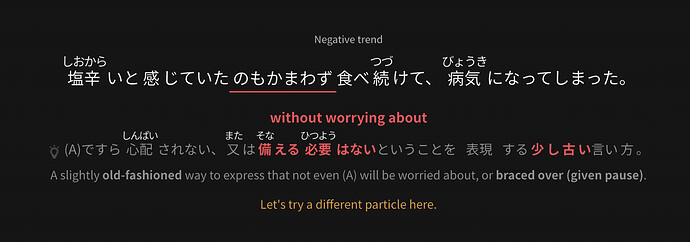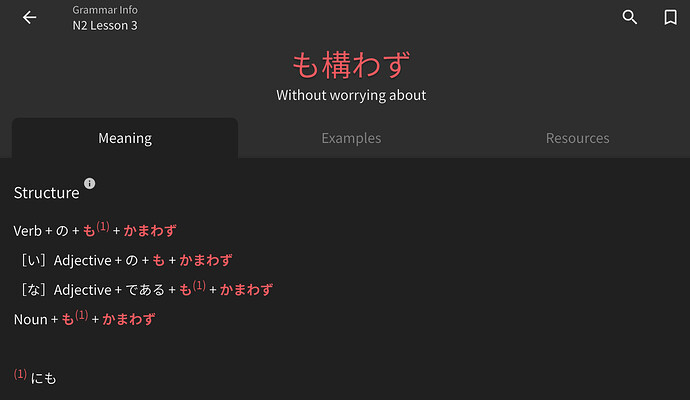Could someone explain what the nuance difference is between using にも instead of のも or のにも in this sentence?
1 Like
I think the description of the point already explains it: の is just a nominalizer whereas に also adds emphasis. Combining both into のにも構わず doesn’t seem valid for this point, although のにも can appear in the similar にも関わらず point. Kind of confusing.
1 Like
Both your answer that gave the hint and the one marked wrong perfectly match the explanation and structure on the grammar page, so I think something probably needs clarified there (or fixed in the case of the structure section, assuming のにも actually isn’t valid after a verb).




